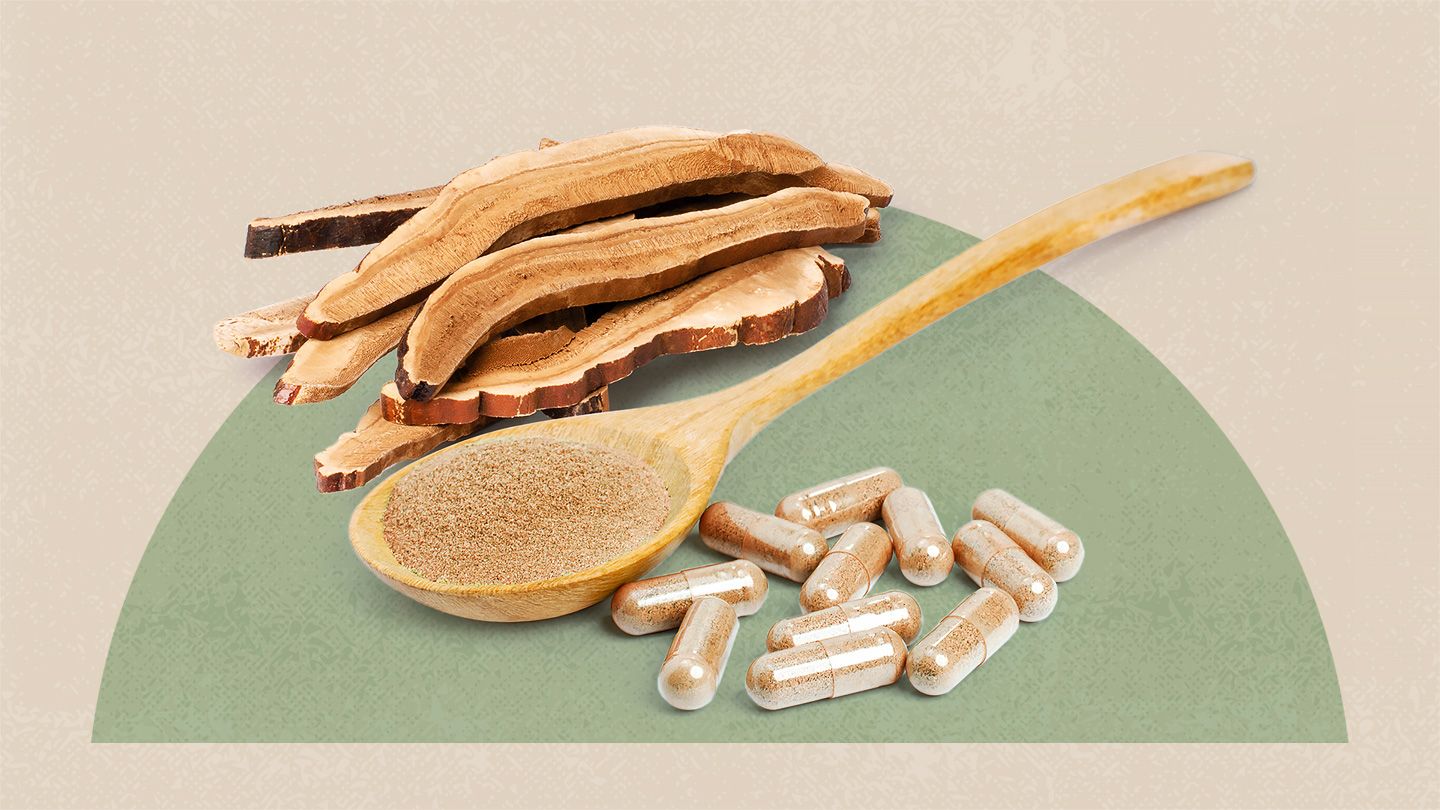Medicinal mushrooms have been tied to at least 130 different therapeutic applications. But solid research on humans that ties mushrooms to specific health benefits is hard to come by.
“The potential benefits are being studied, and there is some promise, but oftentimes the studies are small, or in animals or cells, and they’re usually short term,” says Samantha Cassetty, RD, the New York City–based coauthor of Sugar Shock. “So it’s really hard to say anything definitive in terms of long-term safety and efficacy.”
Support for the Immune System
Some research suggests that medicinal mushrooms may modulate the immune system and offer cancer-fighting properties. They do this by promoting immune cell activity that targets cancer cells and virus reproduction, as well as suppressing an overactive immune system, which may be useful for allergic diseases and autoimmune conditions. These effects are possibly due to beta-glucans, a type of soluble fiber found in many plants, including mushrooms. “While mushrooms have shown clear effects on the immune system in early research, the sample size of most studies has been small, so we need more data from larger trials to know how strong and reliable those effects are,” says Kathryn Durston, RDN, the owner of Naturally Good Nutrition in Grand Rapids, Michigan.
Protection Against Diabetes and Heart Disease
Research has found that a variety of mushroom extracts might play a role in treating diabetes and heart disease. “Multiple studies have shown that mushrooms may help improve insulin resistance and support overall heart health, making them a promising addition for managing diabetes and cardiovascular wellness,” Durston says. Different mushrooms have cholesterol- blood pressure–, and blood sugar–lowering qualities, making them a heart-healthy addition to a meal. That said, Durston notes that she’d like to see larger studies to confirm these findings.
Anti-Inflammatory Effects
Early research suggests some mushrooms may help fight inflammation by targeting proinflammatory proteins and free radicals, but additional, randomized clinical trials are needed. “Mushrooms may have anti-inflammatory potential, but until we see more well-designed, standardized human studies, it’s too early to make strong claims,” says Bonnie Taub-Dix, RDN, host of the Media Savvy Podcast and author of Read It Before You Eat It — Taking You From Label to Table. As researchers point out, in order to fully understand the benefits, we need to have standardization in mushroom extracts in the research.
Athletic Performance Enhancement
A small study of long-distance runners found that supplementation with a type of medicinal mushroom called Cordyceps sinensis boosted endurance. It’s important to point out though that this research is tiny (on 12 male runners) and therefore very limited. “There could be athletic performance benefits, but with such a small study, I wouldn’t rely on mushrooms alone for boosting endurance,” Taub-Dix says. Mushrooms as a food (rather than extract) can be part of a performance-supportive diet, she says, as they’re rich in nutrients and satisfying.
Mental Health and Headache Management Support
In some research, mushroom extracts were found to help reduce anxiety and depression in people undergoing chemotherapy. Although this is a specific patient population, Durston notes that growing evidence suggests mushrooms may play a beneficial role in mood and cognitive health, with studies showing potential improvements in depression and brain function. “While findings vary, larger and longer-term trials are needed to confirm these effects and clarify optimal dosing,” she says.
Researchers are also studying whether psilocybin — a mushroom extract that’s used as a psychedelic — can mediate emotions and moods. Some studies also suggest that psilocybin may exhibit benefits of analgesics, which can relieve or prevent pain in conditions like cluster headaches. But research is currently limited. “It’s worth noting that researchers are still uncovering important details, such as how psilocybin interacts with other medications and what doses are most effective in larger, more diverse populations,” Durston says. Psilocybin is a Schedule 1 substance, which means it’s currently illegal to sell, purchase, or possess it in most states.
Read the full article here




